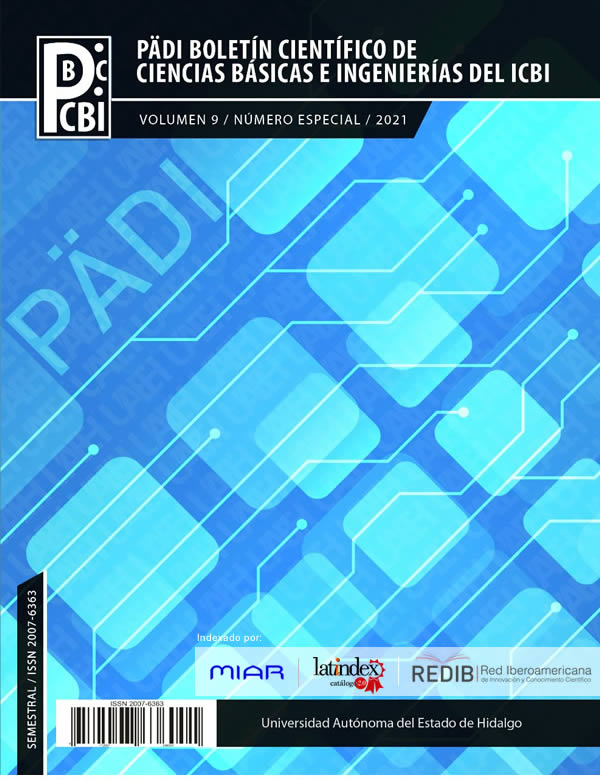Didactic strategy for teaching mathematics in tourism
DOI:
https://doi.org/10.29057/icbi.v9iEspecial.7212Keywords:
Mathematical didactic, assignment model, didactic sequence, thechnological useAbstract
Teaching mathematics through technology becomes an increasingly important task, especially in the new conditions generated by covid-19. This article is about a didactic strategy through the theory of didactic anthropology for the subject of mathematical models for tourism, in which a diagram of the route of the didactic strategy is designed to know the difficulties faced by teachers and students in the proposed activity. The results show that tourism students have problems interpreting the mathematical language and getting the solution of the situation and the use of technology, and depend to a great extent on the advice provided by the teacher. These difficulties are associated with the disarticulation of the teaching of mathematics in professional training courses in tourism.
Downloads
Publication Facts
Reviewer profiles N/A
Author statements
Indexed in
- Academic society
- N/A
References
Anghel, A. G., Drăghicescu, L. M., Cristea, G. C., Gorghiu, G., Gorghiu, L. M., & Petrescu, A.-M. (2014). The Social Knowledge – A Goal of the Social Sustainable Development. Procedia - Social and Behavioral Sciences, 149, 43–49. https://doi.org/10.1016/j.sbspro.2014.08.187
Arseven, A. (2015). Mathematical Modelling Approach in Mathematics Education. Universal Journal of Educational Research, 3(12), 973–980. https://doi.org/10.13189/ujer.2015.031204
Asempapa, R. S., & Sturgill, D. J. (2019). Mathematical Modeling: Issues and Challenges in Mathematics Education and Teaching. Journal of Mathematics Research, 11(5), 71–81.
Barale, C., Granata, M. L., & Chada, M. del C. (2000). La enseñanza y la didáctica: Aproximaciones a la construcción de una nueva relación. Fundamentos en humanidades, 1, 40–49.
Buhalis, D. (1998). Strategic use of information technologies in the tourism industry. Tourism Management, 19(5), 409–421. https://doi.org/10.1016/S0261-5177(98)00038-7
Cahyono, A. N., Sukestiyarno, Y. L., Asikin, M., Miftahudin, M., Ahsan, M. G. K., & Ludwig, M. (2020). LEARNING MATHEMATICAL MODELLING WITH AUGMENTED REALITY MOBILE MATH TRAILS PROGRAM: HOW CAN IT WORK? Journal on Mathematics Education, 11(2), 181–192. https://doi.org/10.22342/jme.11.2.10729.181-192
De Almeida, L. M. W. (2018). Considerations on the use of mathematics in modeling activities. ZDM, 50(1), 19–30. https://doi.org/10.1007/s11858-017-0902-4
DOF. (2020). Programa Sectorial de Educación 2020-2024. https://www.dof.gob.mx/nota_detalle.php?codigo=5596202&fecha=06/07/2020
Droguett, F., Celis, S., Droguett, F., & Celis, S. (2018). Influencia del contexto institucional en el trabajo de los profesores de matemáticas en la educación superior técnico-profesional en Chile. Estudios Pedagógicos (Valdivia), 44(3), 235–252. https://doi.org/10.4067/S0718-07052018000300235
Ferri, R. B. (2018). Learning How to Teach Mathematical Modeling in School and Teacher Education. Springer International Publishing. https://doi.org/10.1007/978-3-319-68072-9
Fondón, I., Madero, M. J., & Sarmiento, A. (2010). Principales Problemas de los Profesores Principiantes en la Enseñanza Universitaria. Formación Universitaria, 3(2), 21–28. https://doi.org/10.4067/S0718-50062010000200004
Fonseca Bon, C., Gascón Pérez, J., & Oliveira Lucas, C. (2014). Desarrollo de un modelo epistemológico de referencia en torno a la modelización funcional. Revista latinoamericana de investigación en matemática educativa, 17(3), 289–318. https://doi.org/10.12802/relime.13.1732
Font, V. (2014) Epistemología y Didáctica de las Matemáticas. Barcelona: Gedisa
Gascón, J. (1998). Evolución de la didáctica de las matemáticas como disciplina científica. Recherches En Didactique Des Mathématiques., 18/1(52), 7–33.
Gascón, Josep. (2011). Las tres dimensiones fundamentales de un problema didáctico: El caso del álgebra elemental. RELIME. Revista latinoamericana de investigación en matemática educativa, 14(2), 203–231.
Hamdy A. (2012). Investigación de operaciones, Novena edición, Editorial Pearson Education, México.
Hsu, C. H. C., Xiao, H., & Chen, N. (2017). Hospitality and tourism education research from 2005 to 2014: “Is the past a prologue to the future?” International Journal of Contemporary Hospitality Management, 29(1), 141–160. https://doi.org/10.1108/IJCHM-09-2015-0450
Kamasheva, Y. L., Aglyamova, Z. S., Yakovlev, S. P., Konovalova, E. V., Zhuravleva, A. S., Mingazov, R. H., & Polyakova, M. V. (2015). Situational Problems as a Means for Forming the Professional Competencies of University Students. Journal of Sustainable Development, 8(3), p162. https://doi.org/10.5539/jsd.v8n3p162
Kumar, V. (2018). Emerging trends in sociology of tourism. Sociology International Journal, Volume 2(Issue 3). https://doi.org/10.15406/sij.2018.02.00053
Luna, E. P., Alfonzo, N., & Curcu, A. (2013). Transdisciplinariedad y educación. Educere: Revista Venezolana de Educación, 56, 15–26.
Morales, C. (2018). Apuntes de investigación de operaciones I, Facultad de ingeniería, Universidad Autónoma de México, Documento: URL: http://www.ptolomeo.unam.mx:8080/xmlui/bitstream/handle/132.248.52.100/15733/ApuntesdeinvestigaciondeoperacionesI.pdf?sequence=1
Moreno, C, y García, M (2009). La epistemología matemática y los enfoques del aprendizaje en la movilidad del pensamiento instruccional del profesor. Investigación y Postgrado, 24(1), 218-240.
Neamtu, D. M. (2015). Education, the Economic Development Pillar. Procedia - Social and Behavioral Sciences, 180, 413–420. https://doi.org/10.1016/j.sbspro.2015.02.138
Nunkoo, R., & Smith, S. L. J. (2013). Political economy of tourism: Trust in government actors, political support, and their determinants. Tourism Management, 36, 120–132. https://doi.org/10.1016/j.tourman.2012.11.018
Pabón J., Parra, M., Fernández, A. (2017). La didáctica en humanidades y ciencias básicas, una disciplina científica. Revista Logos Ciencia & Tecnología. 9. 242-249. 10.22335/rlct.v9i1.455.
Peercy, C., & Svenson, N. (2016). The role of higher education in equitable human development. International Review of Education, 62(2), 139–160. https://doi.org/10.1007/s11159-016-9549-6
Peláez, Á. J. (2007). Kant y los principios a priori de la ciencia natural. Signos Filosóficos, 9(17), 139–162.
Pisa. (2018). Programa para la evaluación de alumnos. Pisa. https://www.oecd.org/pisa/publications/PISA2018_CN_MEX_Spanish.pdf
Quintanilla, V., & Romero, J. G. (2017). Hacia una interpretación justa de la comprensión en matemáticas. VIII Congreso Iberoamericano de Educación Matemática, 165–174. http://cibem.org/
Quiroz Rivera, S., & Rodríguez Gallegos, R. (2015). Análisis de praxeologías de modelación matemática en libros de texto de educación primaria. Educación matemática, 27(3), 45–79.
Ramukumba, T., Mmbengwa, V. M., Mwamayi, K. A., & Groenewald, J. A. (2012). Analysis of local economic development (LED) initiated partnership and support services for emerging tourism entrepreneurs in George municipality, Western Cape Province, RSA. Tourism Management Perspectives, 2–3, 7–12. https://doi.org/10.1016/j.tmp.2011.12.006
Tambychik, T., & Meerah, T. S. M. (2010). Students’ Difficulties in Mathematics Problem-Solving: What do they Say? Procedia - Social and Behavioral Sciences, 8, 142–151. https://doi.org/10.1016/j.sbspro.2010.12.020
Thierauf, R. (2008). Toma de decisiones por medio de investigación de operaciones, Editorial Limusa, México.




















